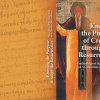Woodlawn Cemetery
Joining a rarified roster of 2,500 sites nationwide, including our St. Sava Pro-Cathedral in Manhattan, Woodlawn Cemetery, one of the largest cemeteries in New York, was designated in 2011 as a National Historic Landmark. Located in the Woodlawn area of the Bronx, Woodlawn Cemetery was opened during the Civil War in 1863. Today it is an oasis in an urban setting, with more than 310,000 individuals interred on its grounds. This cemetery attracts over 100,000 visitors from around the world each year. The National Park Service describes the cemetery as “a popular final resting place for the famous and powerful,” such as Princess Anastasia of Greece and Denmark; authors Countee Cullen, Nellie Bly, and Herman Melville; musicians Irving Berlin, Miles Davis, Duke Ellington, W. C. Handy, and Max Roach; along with businessmen, such as shipping magnate Archibald Gracie and department store founder, Rowland Hussey Macy, and philanthropist Augustus Juilliard, who established the Julliard School of Music.





